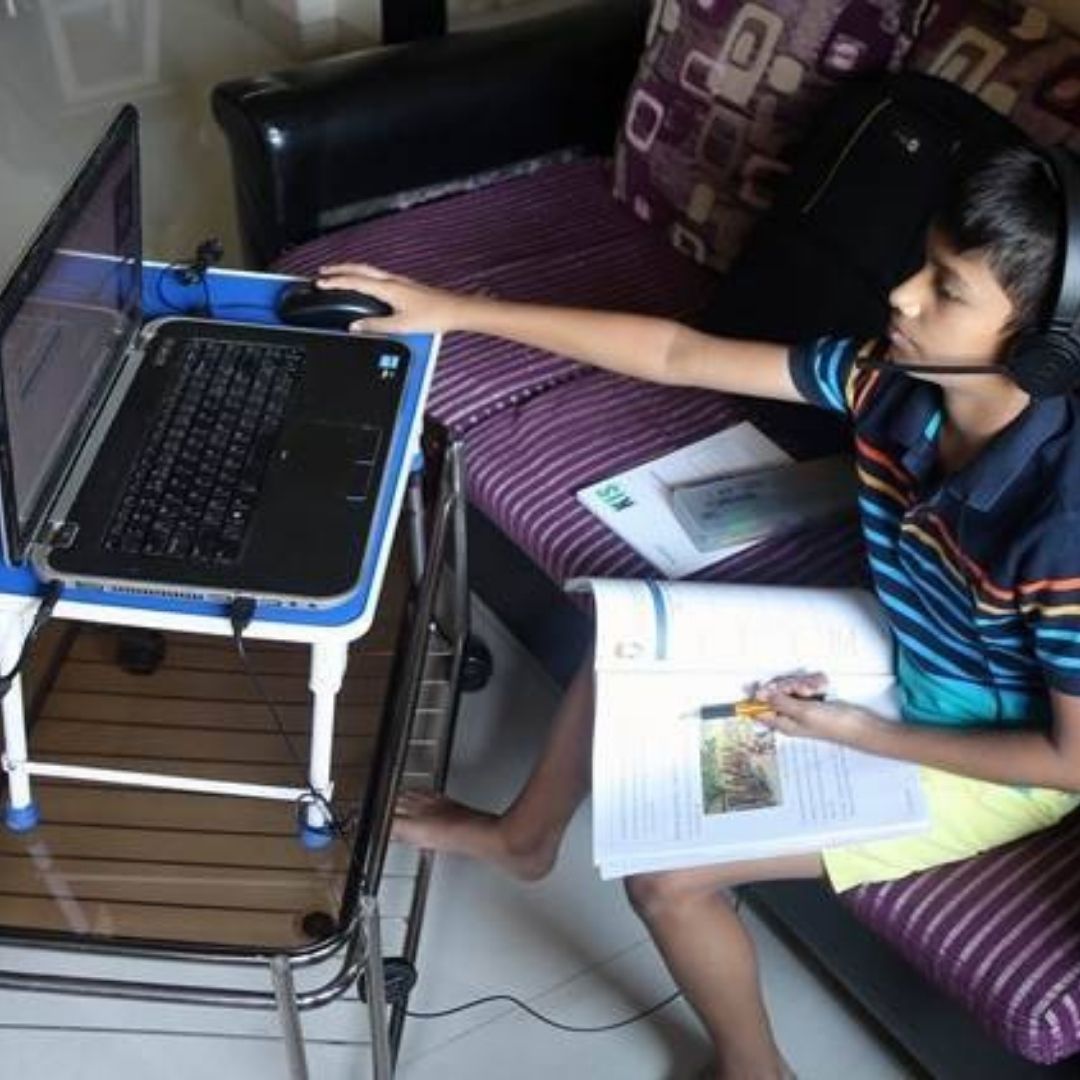
Image Credits: The Indian Express
India Desperately Needs To Switch Back To Offline Classes, Here's Why
Writer: Tashafi Nazir
For most people, journalism sounds hectic and chaotic. For her, it's a passion she has been chasing for years. With an extensive media background, Tashafi believes in putting efforts on presenting a simple incident in the most interesting way.
India, 15 Nov 2021 10:33 AM GMT
Editor : Palak Agrawal |
Palak a journalism graduate believes in simplifying the complicated and writing about the extraordinary lives of ordinary people. She calls herself a " hodophile" or in layman words- a person who loves to travel.
Creatives : Tashafi Nazir
For most people, journalism sounds hectic and chaotic. For her, it's a passion she has been chasing for years. With an extensive media background, Tashafi believes in putting efforts on presenting a simple incident in the most interesting way.
A new study by the Azim Premji Foundation stated that nearly 60% of school children in India do not have remote learning facilities. Similarly, a study by Oxfam India found that even among students of urban private schools, half of the parents reported issues of internet signal and speed.
With the onset of the COVID-19 pandemic in India, and even throughout its two phases, the digital divide has continued to pose challenges in remote teaching and learning experience, experts said.
Teaching and learning activities shifted to the digital mode when the pandemic-induced lockdown forced the closure of educational institutions, including schools and colleges. While technology ensured that learning is not entirely halted, the digital divide continues to make online learning an 'uphill task'.
Now, a new study by the Azim Premji Foundation stated that nearly 60 per cent of school children in India do not have remote learning facilities. Similarly, a study by Oxfam India found that even among students of urban private schools, half of the parents reported issues of internet signal and speed. A third struggled with the mobile data charges, India Today reported.
According to a new national sample survey by ICRIER and LIRNEAsia, only 20 per cent of school kids in the country had access to online education during the COVID-19 pandemic. Among them, only 50 per cent participated in live online lessons.
As per the survey, 38 per cent of households said at least one child had dropped out of school due to the pandemic. "Online learning was the only logical way forward to continue education for children during these difficult times. But now, there is a requirement to categorically address some relevant issues for building a more tough system for the future, regardless of whether conventional or digital schooling is the primary way forward," said Amruta Singh, an education expert, according to India Today.
What Experts Say
According to Sangeeta Gadre, a Delhi University professor, the issue of the digital divide was faced at both sides of the academic transaction, be it the teacher or the student. "While advancing the cause of digitalisation, these challenges must be accounted for. We also need to be mindful of the fact that women are proportionately more disadvantaged than men when it comes to the access of digital devices," Ms Gadre said.
"Technology has the potential to attain universal quality education and improve outputs. But to unleash its potential, the digital divide and the embedded gender divide need to be addressed," said Urvashi Sahni, a fellow at the Center for Universal Education at the Brookings Institution.
"Access to digital gadgets and the internet is an urgent requirement in this age. It should no longer be a luxury," she stressed.
A professor from Ambedkar University said, "The digital divide continues to make online learning an operational nightmare. More than one-and-a-half years into the pandemic, it still poses a challenge and cannot replace the traditional classroom learning."
Also Read: UNICEF Unveils 'Pandemic Classroom' In Delhi On Children's Day
 All section
All section














